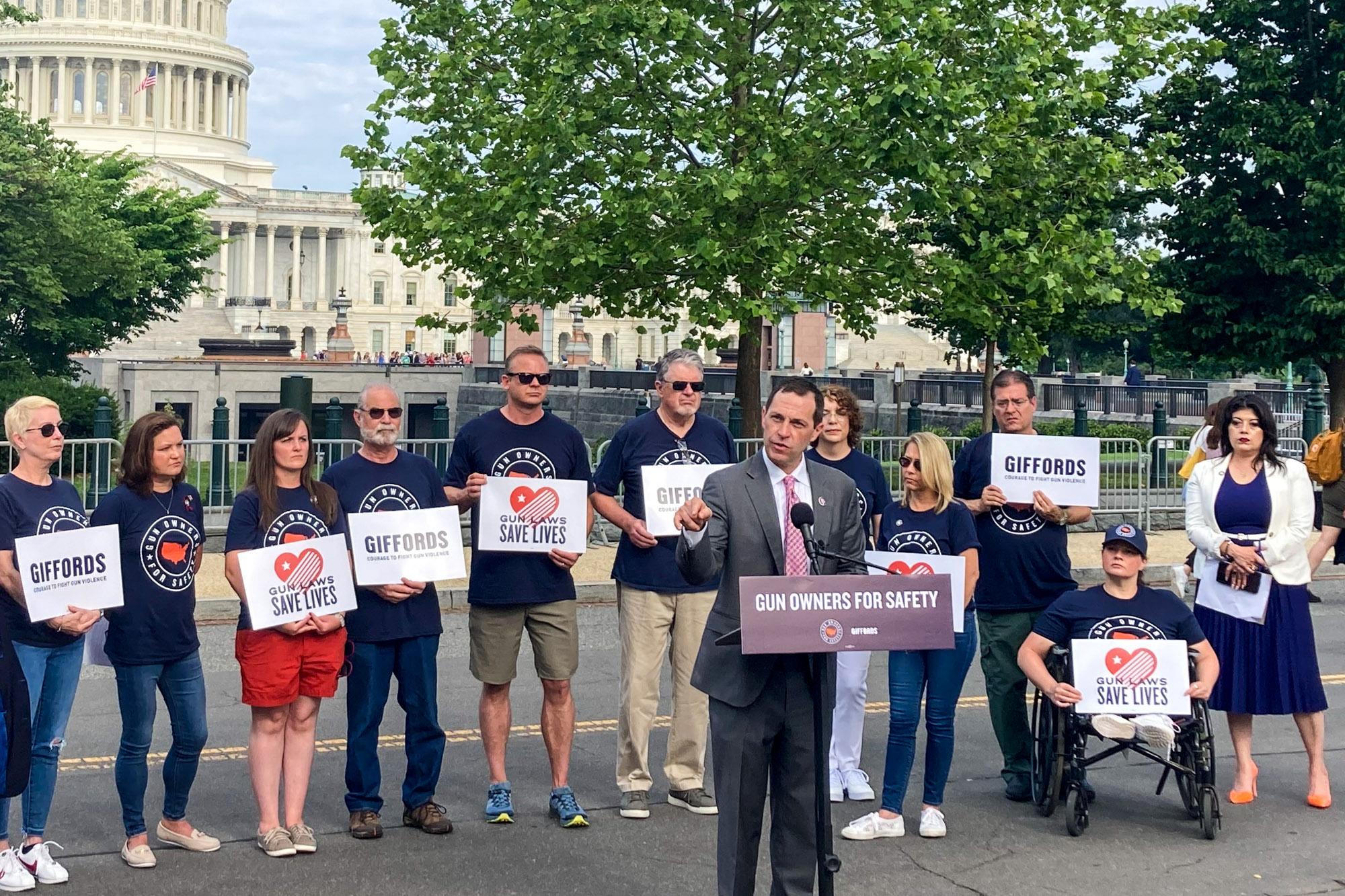
Gun policy is front and center this week on Capitol Hill, and it’s highlighting the partisan rifts in Colorado’s delegation.
The House is getting ready to pass the Protect Our Children Act later today. Among other things, the bill aims to prevent straw purchases of weapons; It also requires safe storage, raises the age to purchase an assault weapon to 21 and bans bump stocks and ghost guns.
Rep. Diana DeGette was asked by House Speaker Nancy Pelosi to preside over the debate on the bill, which also includes legislation the Denver Democrat sponsored banning high capacity magazines.
The chamber is also expected to take up the Federal Extreme Risk Protection Order Act, a red flag bill, on Thursday.
Although Colorado already has a Red Flag law and a ban on large capacity magazines, Colorado’s congressional delegation has split along party lines when it comes to the policies being debated this week.
Wednesday morning, Democratic Rep. Jason Crow joined other gun owners in his party to call for what they described as “common sense” legislation.
“It’s time for gun owners, American citizens, for neighbors… to say enough is enough,” Crow said.
Crow, who is a former Army Ranger and started hunting when he was 12, added that semiautomatic rifles, such as those used by the mass murderers in Uvalde, Texas, and Buffalo, New York, should not be available for commercial sale.
“The rifles I took with me to Iraq and Afghanistan do not belong in the streets of America,” he said. “They don’t belong in our churches and our synagogues because they are weapons of war and they’re made to do terrible things.”
On Wednesday afternoon, GOP Rep. Lauren Boebert, who along with Rep. Thomas Massie leads the Second Amendment caucus, heartily disagreed with Crow’s message. She said she would vote against the package, describing it as a “gun grab” and “knee jerk legislation driven by emotion.”
“Make no mistake, the tragedy and Uvalde weighs heavy on all of us. But blaming the gun rather than the criminal is not helpful or productive,” she said at a press conference with other Second Amendment caucus members. “I did not come to Congress to negotiate the rights of my constituents away.”
Boebert spoke of securing schools, arming teachers and taking on a mental illness problem in America.
“We need to restore hope to our children, let them know that they are valued. And when there are signs of mental instability, not to encourage that,” she said. “If my nine-year-old suddenly tells me he’s a mermaid, I think that we need to have at least a conversation rather than letting him live the rest of his days in a swimming pool with his feet tied together.”
Republican Rep. Ken Buck has also criticized the legislation the House is taking up.
Last week, he argued none of the measures would have prevented the most recent shootings. Buck has called for discussion and debate around hardening schools and doing away with gun-free zones.
It’s this type of attitude that frustrates Democratic Rep. Ed Perlmuttuer, who was a state senator during the attack on Columbine High School and in Congress for the more recent massacres in Aurora and Boulder. He said he knows what it’s like to talk with families and communities “that have been scarred forever as a result of mass shootings.”
Perlmutter asked somewhat rhetorically how some elements of the bill — specifically universal background checks, red flag laws, and raising the purchase age of semiautomatic rifles to 21 — “how those three things can be unacceptable to the Republican Party here in Congress.”
“This has got to stop,” Perlmutter said. “Really since Columbine, it’s gotten worse and the laws haven’t gotten better. They’ve been opposed each and every time — certainly here in Congress.”
Crow and Perlmutter are both members of the Gun Violence Prevention Task Force.
While both bills are expected to pass the House, the Senate is unlikely to take either up.
Instead, Democratic Sen. Chris Murphy of Connecticut and Republican John Cornyn of Texas have been negotiating a much narrower piece of gun legislation that would enhance background checks, encourage states to pursue red flag laws, and include school safety and mental health provisions.









